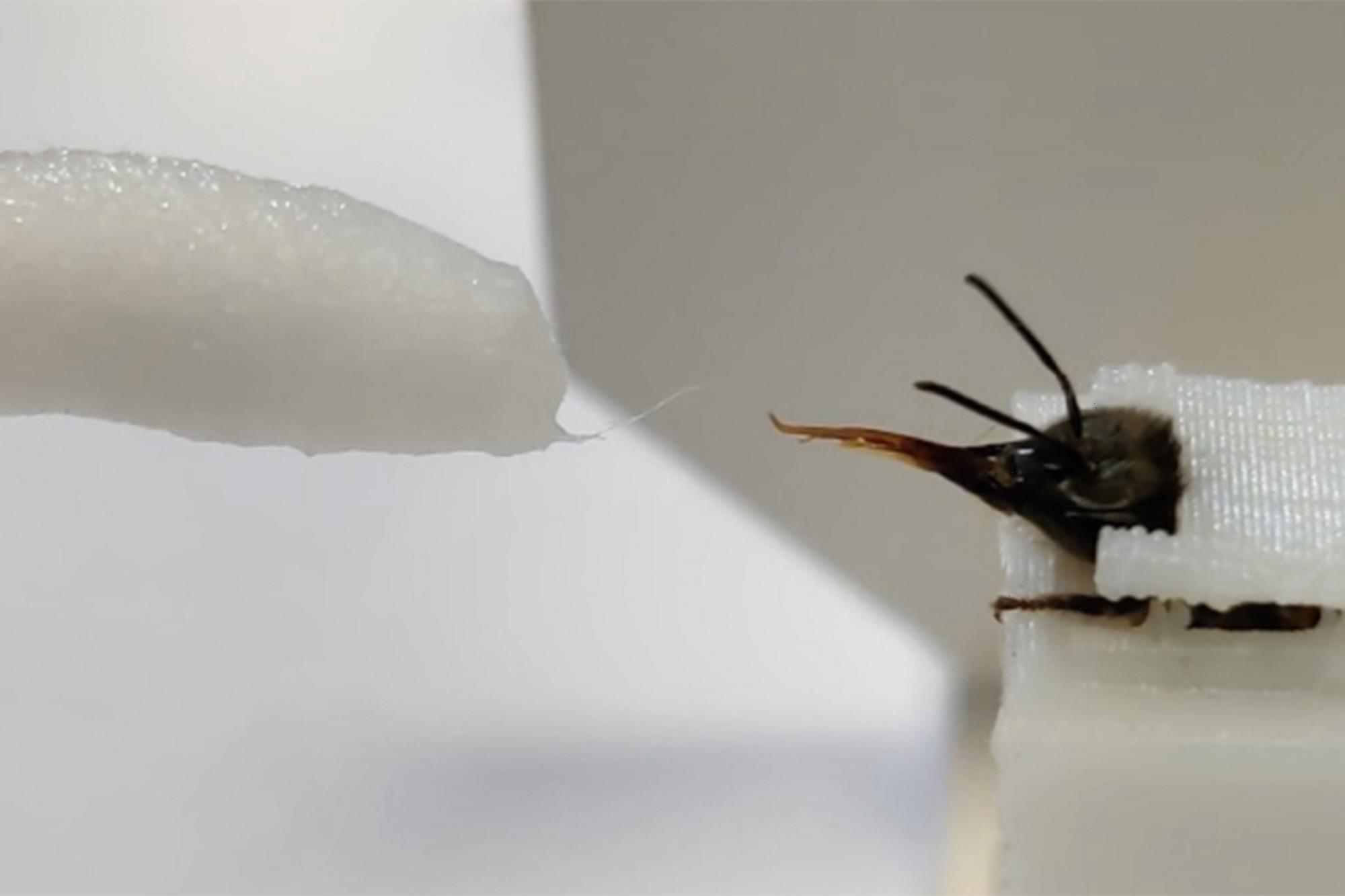More On:
Coronavirus
US screens 1.64M at airports, highest since March 2020, TSA says
‘The sweetest dog’: Abandoned dog named ‘Covid’ rescued from high-kill shelter
Bills GM gets NFL call over vaccine-related cuts talk
Rutgers to enroll 200 kids to take part in Pfizer COVID vaccine trial
Here is some buzz-worthy news!
Dutch researchers have trained bees to sniff out COVID-19 samples — cutting down the wait time for test results, experts said.
To train the insects, scientists at Wageningen University in the Netherlands gave them sugary water as a reward for identifying samples of the virus. The bees, which have a keen sense of smell, got no reward for showing researchers non-infected samples.
Scientists found that after the insects learned the system, they identified a positive coronavirus test result within seconds by extending their tongues for a drink.
By contrast, it can take hours or days to get a conventional COVID-19 test result. The bee method is also cheap, potentially making it useful for countries where tests are hard to come by, researchers said.
“We collect normal honeybees from a beekeeper and we put the bees in harnesses,” said Wim van der Poel, a professor of virology who took part in the project. “Right after presenting a positive sample we also present them with sugar water. And what the bees do is they extend their proboscis to take the sugar water.”
But some experts doubt the technique will replace standard forms of COVID-19 testing anytime soon.
“It is a good idea, but I would prefer to carry out tests using the classic diagnostic tools rather than using honeybees for this. I am a huge bee lover, but I would use the bees for other purposes than detecting COVID-19,” Dirk de Graaf, a professor who studies bees at Ghent University in Belgium.
In the past, bees and wasps have been used to detect explosives and have also aided with medical diagnoses, de Graaf said.
Share this article:
Source: Read Full Article

